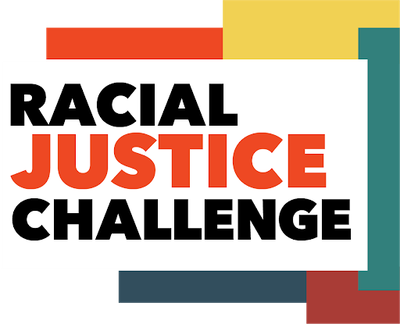The Racial and Social Justice Specialist is a new position that became active over the last two years at YWCA in Spokane.
Serving in this role is Jazmin Duran. In September, YWCA will spearhead the Racial Justice Challenge, an initiative that aims to encourage conversations on race that are often avoided, but that are nonetheless important and crucial. Duran shares that Dr. Eddie Moore, Jr. and Debby Irving are creators of the original 21-day challenge that has inspired YWCAs across the nation. This is YWCA Spokane’s fourth year creating the Racial Justice Challenge. Understanding implicit bias and how it shapes one’s attitudes, decisionmaking and interactions is key in this challenge. Duran understands that in general, if an issue is not affecting us, it is easy to avoid.
“This challenge invites people to dedicate five minutes of their day to read about something that is either completely new to them or that they have very little knowledge about,” Duran said.
This provides exposure to what may be unfamiliar to some, a first step in developing understanding. As far as discomfort goes, there is the expectation that these daily challenges may cause tension or defensiveness. Duran pushes those participating to ask themselves why they feel this way, as a part of processing through the challenge.
Contending with hard truths is not something that comes easy. The ones telling it can be viewed as trouble-makers, often leading to racial battle fatigue in those who dare to speak boldly about racism, while those who are less familiar may prefer a “racism-lite” version of conversation, if such a thing exists. Duran asserts that “being able to listen to the voices of these marginalized communities is very important.
“They are the ones that experience it firsthand, the ones that witness it the most often,” Duran said.
When that feeling of burnout and alienation creeps in, mental exhaustion is inevitable.
“That’s where connecting within your own community, or even other minority communities (is important). Together we’re louder in a way. And it is really important to be able to voice what our issues are that we come across because we’ve been told to not complain, right? We’ve been told to kind of keep it quiet. It hasn’t helped at all,” Duran said. “So we need to voice what our important issues are in our everyday lives and make our own space.”
Often, the conversation around racism can manifest feelings of guilt and shame. Avoidance and even denial become much easier (and often preferred) ways of authentically addressing concerns.
“There’s this kind of thought that I heard somebody say; you know, would you rather feel embarrassed that you are sitting on the sidelines doing nothing about it, or would you rather feel embarrassed but be able to work through it,” Duran said.
In order to forge a new way of understanding and interacting with each other, there has to be an honest reckoning of how racism, bigotry and bias affect the way in which we relate to each other. More harm is done when respectability politics is prioritized, moving the needle away from hard topics. The BIPOC community, too often, is expected to grin and bear it, keep the protest quiet, assimilate, or water down their lived experiences as a default to the status quo, to make others comfortable. Anti-racism is proactive, uncomfortable work that cannot live under the false pretense of progress. If we are not careful, complacency can be a wolf in sheep’s clothing.
When reflecting on how we move ahead through adversity, and whether there is a way that prevents progress, Duran said, “I don’t know if we ever have fully moved from the past, right? So, to move backwards, doesn’t really apply, because did we ever really fully move forward? I don’t think so.”
She emphasizes that we should all proactively work together.
“And maybe it’s two steps back and three steps forward and one more step back,” Duran said, “but I think standing up against that fear of moving backwards, that is what really will keep us going, and makes us stronger all together.”
What does community power look like to Duran? “It looks like support in lots of different variations. It’s not just emotional support or physical support. It’s also doing the backend work.”
She shares that everyone has an important part to play. Listening, organizing, challenging, taking action – these are all necessary components in the work of anti-racism. The goal is to just keep going.
“Here at YWCA, we do have our racial social justice learning community and we meet up once a month, and quarterly (we meet) once in person.”
